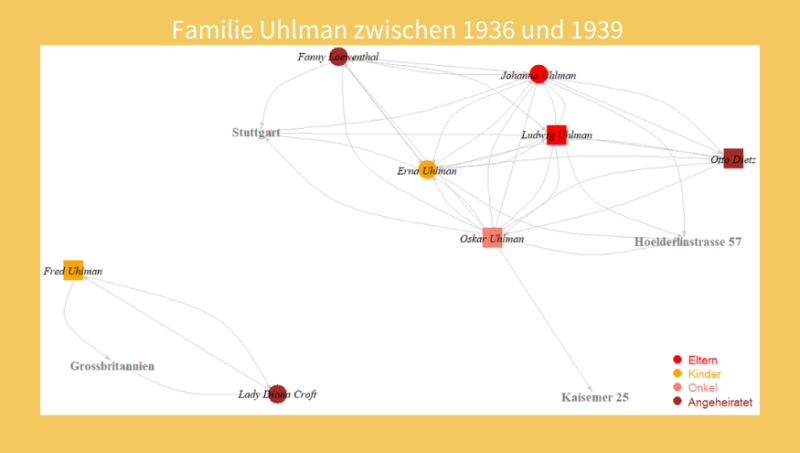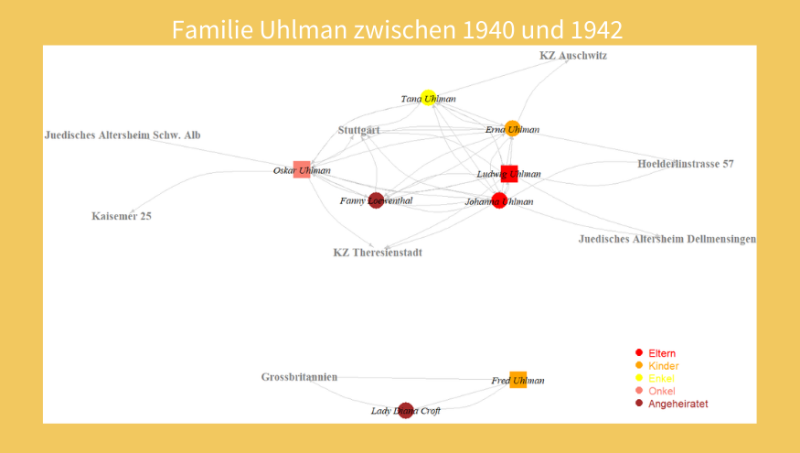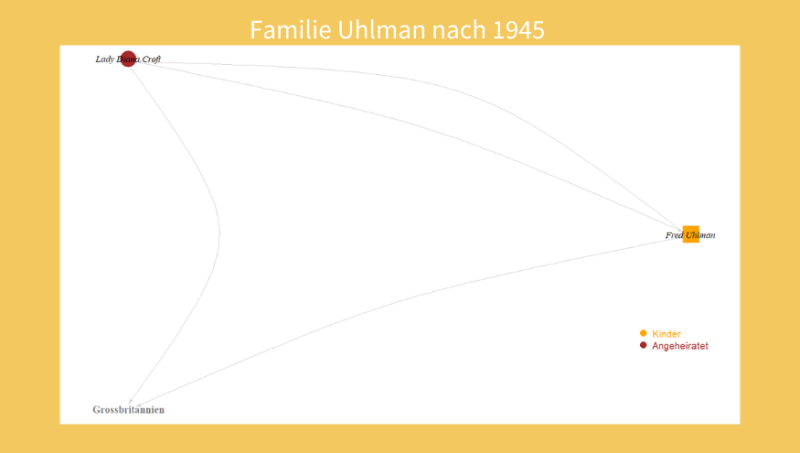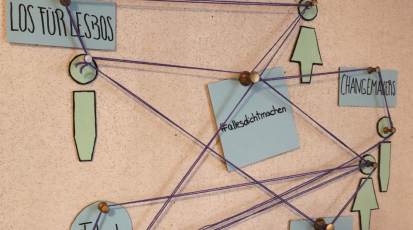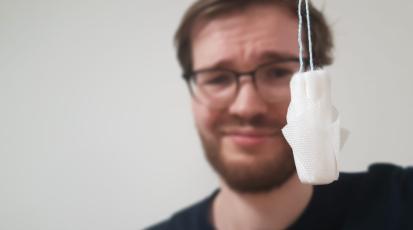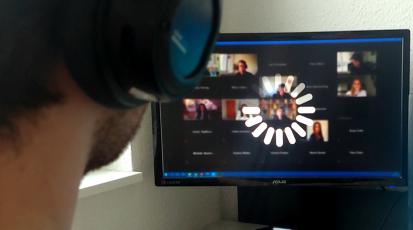Students' Health - Should Grades Be Abolished?

Six subjects to study and various exams to pass - Laureta wants to get a good grade in any case. The journalism student from the Stuttgart Media University (HdM) often feels insecure and stressed by the pressure to perform. In addition, current world events such as wars, natural disasters and other factors increase stress levels: As a result, more than 60 percent of students feel their mental health has been negatively affected, according to the Studo and Instahelp survey. The current situation is leading many universities to rethink structures for mental health and learning experiences.
HdM professor Alexander Mäder has noted several times that even very good students experience high stress. He wonders if the pressure will ease when grades would be abolished. At the Inholland University of Applied Sciences in Rotterdam, the "portfolio" was recently introduced as an alternative performance assessment - the future for many practice-oriented courses of study, belive Dutch students.
Portfolios are collections of evidence such as documentation of various projects, learning achievements, reflections on teamwork, personal performance, and personal development. According to the concept of Inholland University in Rotterdam, the lecturers of each project give feedback on how the student has performed and what kind of improvement can be brought into the next project. At the end of the semester - in Holland, at the end of the year - examiners reflect with students on the entire portfolio with all documented projects to evaluate the student's learning outcomes. If the result is satisfactory, the student can move on to the next semester.
Two professors, as well as two students from the Inholland University of Applied Sciences in Rotterdam, exchanged experiences and thoughts in an online discussion with two German students from the Media University in Stuttgart (HdM): The debate about student mental health discussed the pros and cons of using portfolios as a method of assessment versus using grades.
Feedback Is Important
Grades have always had an important function: In Germany, numbers on a scale from one (very good) to six (unsatisfactory) indicate whether students have been successful or not. In the Netherlands, the scale even extends to one to ten - with one being the worst grade. Even a low grade can increase the student's motivation to study harder next time. But HdM student Lukas is convinced that with or without a grade, everyone is responsible for how much effort they want to put into an exam. Especially in the portfolio system, self-management matters. Projects have to be planned and accomplished, then later written up in the portfolio. Here, self-reflection is an important part. This helps students to understand what they learned from the first project and what improvements they can bring into the next one, says Bas van den Beld. The Lecturer at Inholland provides students with detailed feedback - a capability that grades typically don't offer. "When I get my grades at the end of the semester, I usually don't know what I could have done better", Laureta says. The HdM student only feels truly confident in her future performance after speaking with her professors. "It's only through feedback that we could develop in a way that wouldn't be possible through only a number", adds Renske, a student at Inholland.
It Is Not A Matter Of Pass Or Fail
Nevertheless, HdM student Lukas doesn't want to study without grades. As the semester comes to an end, he likes to see his success in numbers. Inholland students can't rank themselves that easily by their portfolios. The Lecturers of the University are still working on a system that will help students classify their level of education in a general way. Lana doesn't think it's necessary. So far, the Dutch student appreciates that personal development is the focus of the portfolio-method. "Everyone is different, develops individually and should not have their competencies measured by a general ranking", she says. Anyway, a bad grade and feedback in the portfolio system would not equal being a bad professional in the future, say Dutch professors. According to Abdul Kara, learning only begins when students are allowed to fail. Then they would reflect and learn what needs to be changed and how they can personally improve.
Grades Are Rather Less Of A Determining Stress Factor
HdM student Laureta would like to participate in a mixed system of portfolio and grades. It would only depend on the exam performance, she says. Very practical, self-reflective and opinion-oriented exams should be assessed by portfolio and not by grades. For Laureta, eliminating partial grading is a small step toward a better learning environment that could be easily implemented. More deeply rooted are personal doubts and insecurities about the learning process. Some students get lost in time pressure - both within the grading system and the portfolio system. Inholland student Lana is convinced that many students feel more confident and thus more resilient to stress if they also learn how to deal with pressure in the study context - for example, with methods for dealing with time pressure and high workload.
Counseling And Support Services At Universities Offer Help
"It would be worth investing more in support services", says David Sixt, student advisor at Stuttgart Media University. Last year, many students took advantage of the university's internal counseling service. The demand was thus 79 percent higher than in the previous year 2021. In the group counseling sessions, students learn how to deal with challenges in their studies: for example, through self-organization, learning methods or weekly plans. Personal stress, worries and fears are usually part of the individual conversations, says David Sixt. Although the pressure of grades would be addressed more indirectly, he adds, it is often a stressor as well. Through the counseling services and the various programs offered by the Center for Learning & Development at Stuttgart Media University, students can learn methods that will strengthen them in the long term in dealing with stressful study and later work situations. In this context, the annual action weeks are also intended to provide support: Long Nights of Deferred Homework, Study & Career Week, or Thesis Fridays are some of the offerings that not only provide tips for everyday study, but also raise awareness of how to handle or avoid stressful situations. Prevention courses such as yoga and meditation classes can provide more attentiveness, relaxation, balance and exercise in everyday life.
People Open Up About Mental Health
Currently, the demand for individual counseling sessions at the HdM has increased. Deep-seated problems are addressed - individually, confidentially, and in the context of the student's studies. Because even though advisors at the Student Counseling Center address mental health problems, they cannot replace psychotherapy. "We accompany students in stressful situations, often to bridge the gap until someone can get into therapy", says student advisor David Sixt. In addition, the offer can also be taken advantage of during therapy.
"The best way to combat stress and anxiety is to get everything off your chest", David says. Even if tears sometimes flow, the students would agree that the conversation has done them good. More and more people are now seeking help - whether on an emotional or professional level. While this need is triggered by current crises, it could also be a sign that mental health is no longer a taboo topic and that people care about their health. More and more universities are responding to the needs of their students - a commitment that is gratefully appreciated.






